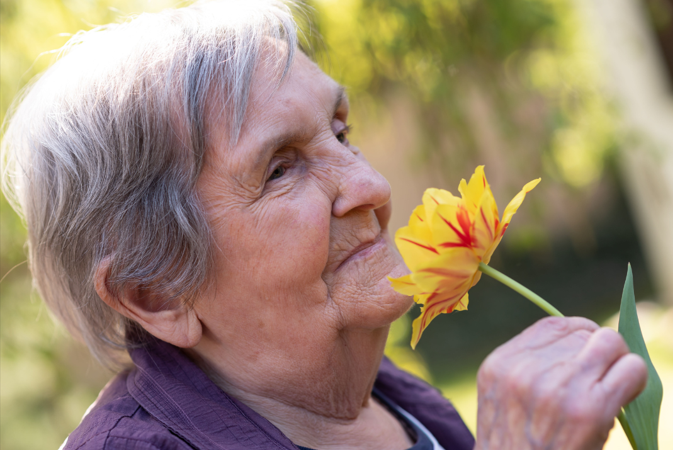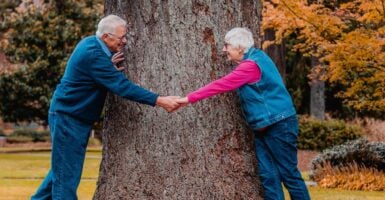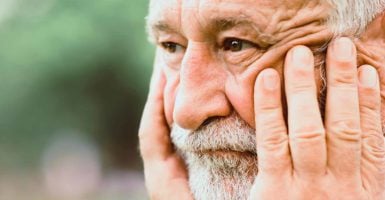Building on previous research showing that olfactory dysfunction (relating to the sense of smell) is a common early sign of brain-linked cognitive decline, the new findings suggest the link to frailty is likely not just in the brain but also in the nose itself.
If further studies confirm these findings, the researchers say that screening older adults’ ability to smell various scents could be as important as testing hearing and vision over time. Previously studies have shown that smell dysfunction acts as an early indicator of cognitive decline. The study assessed both the ability to detect a smell and the ability to detect and name the smell.
Better smelling skills linked to better overall health
The researchers study involved 1,160 older adults who were exposed to five scents to measure identification skills and six scents to measure sensitivity. The results were matched to their frailty score. They determined that for each one-point increase in both smell identification and sensitivity scores, frailty status declined significantly, which suggests that the ability to smell well has a connection to better overall health in the ageing population. Keeping an eye on sense of smell may serve as an important sign for an increased risk factor of frailty.
Nicholas Rowan believes that this work contributes to growing evidence in favour of using smell tests as an integral part to clinical care for ageing people that may be cognitively impaired. This follows on from previous studies last year where rapidly losing the sense of smell ‘anosmia’ could help doctors detect Alzheimer’s disease years before symptoms emerge.
“We already do tests to assess how well we can see or hear, and it’s just as easy to conduct a simple smell test that takes only minutes, which could potentially be used as a valuable tool to assess the risk of frailty or unhealthy ageing,” says Rowan.
At the moment the relationship of this loss of smell and with unhealthy ageing over time is unclear.
The study concludes that common consequences of smell loss include a loss of appetite, difficulty monitoring personal hygiene, depression and an inability to detect toxic fumes. In older adults, this may be associated with weight loss, malnutrition, weakness, inadequate personal care and even potential injuries caused by gas leaks or fires.
Is loss of taste and smell normal with ageing?
Some loss of taste and smell is natural with ageing, especially after age 60. But other factors can contribute to loss of taste and smell, including:
- Nasal and sinus problems, such as allergies, sinusitis or nasal polyps
- Viral infections, including the common cold and the flu
- COVID-19
- Certain medications, including beta blockers and angiotensin-converting enzyme (ACE) inhibitors
- Dental problems
- Cigarette smoking
- Head or facial injury
- Diseases that affect the central nervous system, such as Alzheimer’s disease and Parkinson’s disease
Loss of taste and smell can have a significant impact on quality of life. It often leads to decreased appetite and poor nutrition. It can sometimes contribute to depression.
If you’re experiencing loss of taste and smell, see your GP. Some causes of impaired taste and smell are treatable. For example a GP may adjust your medications if they’re contributing to the problem. Many nasal and sinus conditions and dental problems can be treated as well. If you smoke, quitting can help restore your sense of smell.
Most people who have loss of taste and smell associated with COVID-19 disease report seeing improvements in their symptoms in a few weeks. However, for some, loss of taste and smell may linger for months.




